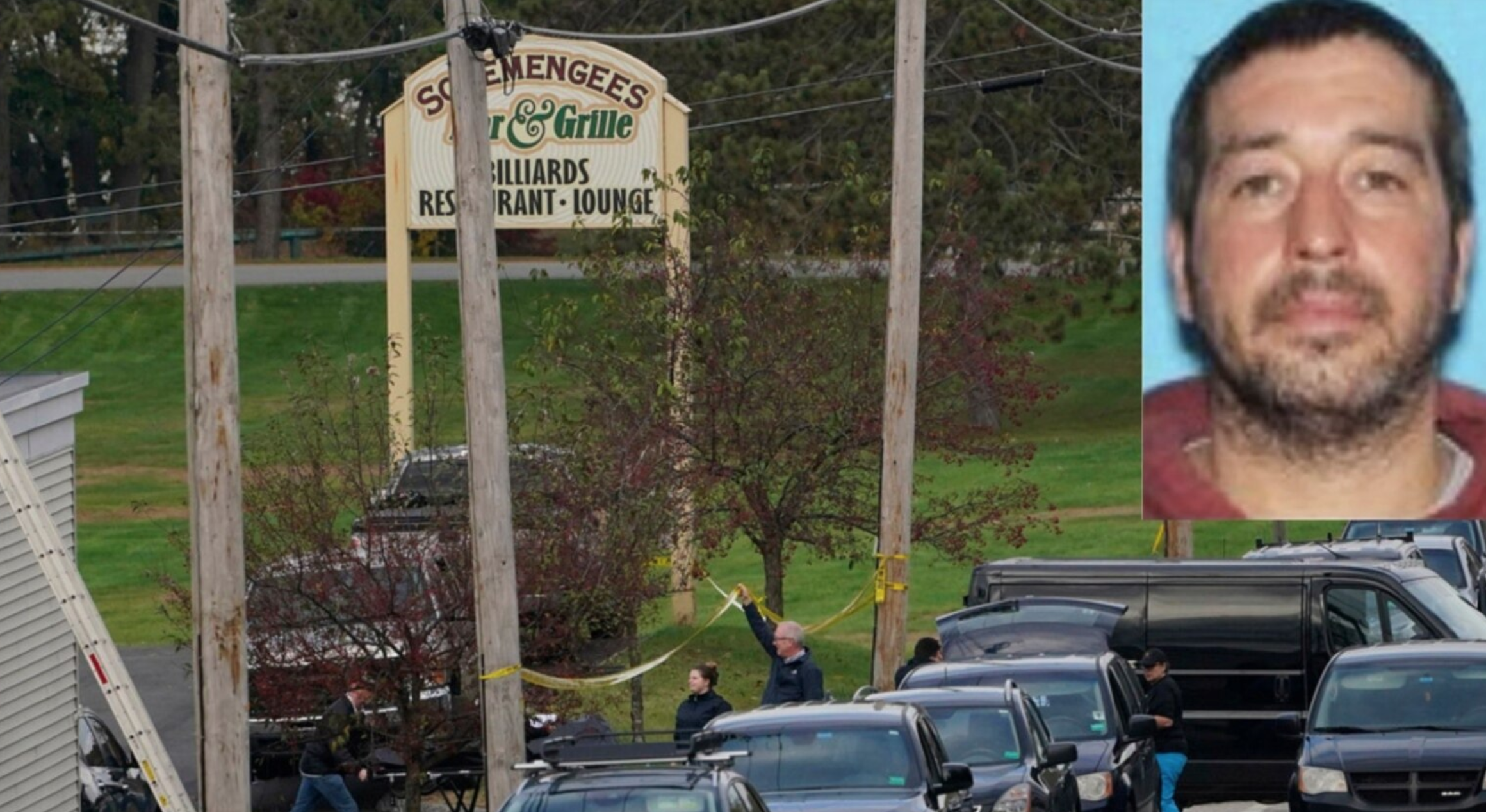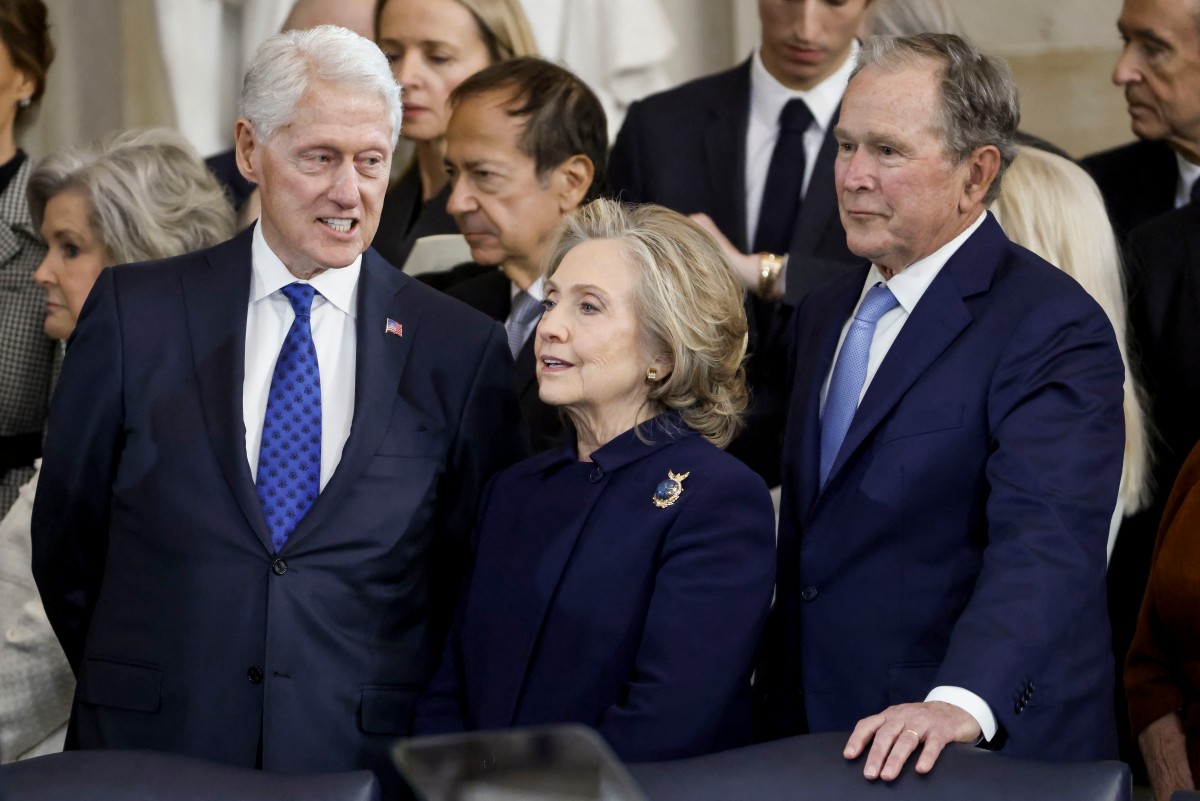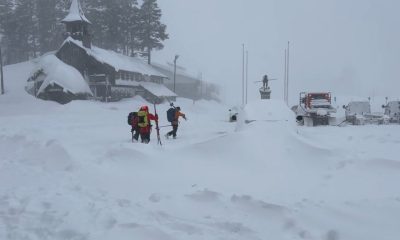International
USA: At least 16 dead in Maine shooting; police search for assailant

October 26 |
A man shot dead at least 16 people at a restaurant and bowling alley in Lewiston, Maine, on Wednesday and then fled into the night, prompting a massive search by hundreds of officers as frightened residents remained holed up in their homes.
A police bulletin identified Robert Card, 40, as a person of interest in the attack who opened fire at the bowling alley at about 7:00 p.m. The man was described as a firearms instructor.
Card was described as a firearms instructor believed to be in the Army Reserve and assigned to a training facility in Saco, Maine.
The document, distributed to police said Card had been committed to a mental health facility for two weeks in the summer of 2023. It did not provide details about his treatment or condition, but said Card had reported “hearing voices and threats to shoot up” the military base.
A phone number listed in Card’s public records was not in service.
Earlier, Lewiston police said in a Facebook post that they were dealing with an active shooter incident at Schemengees Bar and Grille and Sparetime Recreation, a bowling alley about 6.4 miles away.
A bowler, who identified himself only as Brandon, said he heard about 10 shots and thought the first was a balloon burst. He then saw a man with a gun and ran to hide in the bowling area on top of the machinery.
He and a group of survivors were driven to a high school in the neighboring city of Auburn to meet with family and friends.
Melinda Small, owner of Legends Sports Bar and Grill restaurant, said her staff immediately locked its doors and moved the 25 customers and employees away from the doors after a customer reported hearing about the shooting at the bowling alley nearby.
Soon, police flooded the road and a police officer eventually escorted everyone out of the building.
After the shooting, police, many of them armed with rifles, took up positions as the city descended into an eerie silence, punctuated by occasional sirens, as people took shelter in their homes. Schools are closed Thursday in Lewiston, Lisbon and Auburn, as are municipal offices in Lewiston.
The Androscoggin County Sheriff’s Office posted two photographs of the suspect on its Facebook page showing the shooter entering an establishment pointing a gun.
Two law enforcement officials told AP that at least 16 people were killed and the number was expected to rise.
However, Michael Sauschuck, commissioner of the Maine Department of Public Safety, declined to provide a specific estimate at a news conference, calling it a “fluid situation.” State police were scheduled to hold a mid-morning news conference Thursday.
The two officials also said dozens of people had also been injured.
On its website, Central Maine Medical Center said staff was “reacting to a mass casualty event and mass shooting” and coordinating with area hospitals to receive patients. The hospital was locked down and police, some armed with rifles, remained at the entrances.
Meanwhile, hospitals as far away as Portland, about 35 miles (56 kilometers) to the south, were on alert for possible victims.
The order for residents and business owners to stay inside and off the streets of the city of 37,000 was extended Wednesday night from Lewiston to Lisbon, about 13 kilometers (8 miles) away, after a “vehicle of interest” was found there, authorities said.
Gov. Janet Mills issued a statement echoing instructions for people to take shelter. She said she had been briefed on the situation and will remain in close contact with public safety officials.
President Joe Biden spoke by phone with Mills and members of the state Senate and House of Representatives, offering “full federal support in the wake of this horrific attack,” according to a White House statement.
Maine does not require permits to carry guns, and the state has a long-standing culture of gun ownership that is tied to its hunting and sport shooting traditions.
International
Federal Judge Blocks Trump Policy Allowing Deportations to Third Countries

A federal judge ruled on Wednesday that the policy of U.S. President Donald Trump’s administration allowing immigration authorities to deport foreign nationals to third countries without prior notice or the opportunity to object is unlawful. The decision marks another legal setback for the administration on immigration matters.
Judge Brian Murphy of the U.S. District Court for the District of Massachusetts struck down the regulation issued last year, which stated that Immigration and Customs Enforcement (ICE) was not required to notify migrants if they were to be sent to countries other than the one listed in their removal order, provided that receiving nations offered assurances they would not face persecution or torture.
Murphy ordered the measure vacated but granted a 15-day delay before the ruling takes effect, giving the Trump administration time to file an appeal.
In his decision, the judge concluded that the policy violates federal immigration law and migrants’ due process rights. He also questioned the lack of transparency surrounding the alleged assurances provided by receiving countries, stating that “no one really knows anything about these supposed ‘assurances.’” He added, “It is not right, and it is not lawful.”
The ruling follows several legal disputes involving deportations to third countries. Last year, the executive branch deported more than 200 Salvadorans to a maximum-security prison in El Salvador, invoking an old wartime law. The White House also held talks with Costa Rica, Panama, and Rwanda about receiving migrants who are not citizens of those countries.
In May, the same judge determined that the government violated a court order when it attempted to remove a group of immigrants with criminal records to South Sudan without prior notice or an opportunity to raise claims of fear of persecution.
Although President Donald Trump took the case to the U.S. Supreme Court, which temporarily allowed the deportations to resume while a final decision was pending, the White House is expected to again appeal to higher courts to overturn this latest judicial ruling.
International
Cocaine Production Surges 34% in 2023 as Market Expands into Africa and Asia

The global cocaine market is the fastest-growing among all illicit drugs worldwide, the International Narcotics Control Board (INCB) warned on Thursday in its annual report presented in Vienna.
The body attributes this expansion to the sustained rise in production in South America — particularly in Colombia — as well as increasing demand in emerging regions such as Africa and Asia.
According to the report, global cocaine production surpassed 3,700 metric tons in 2023, marking a 34% increase compared to 2022. This growth is largely driven by the expansion of illicit coca cultivation in Colombia and the greater production capacity of clandestine laboratories.
The INCB noted that the market has not only grown in volume but has also diversified and become more globalized. While Europe and North America remain the primary destinations, trafficking routes now reach “all regions of the world,” including Africa — traditionally considered a transit zone — and Asia, where the presence of cocaine was previously marginal.
In Western and Central Europe, for the fifth consecutive year, seizures in 2023 exceeded those in North America, consolidating the region as the leading destination market. Between January 2019 and June 2024, more than 1,826 metric tons of drugs bound for European ports were seized, of which 82% was cocaine, equivalent to 1,487 metric tons.
The report also highlights that seizures in Africa rose by 48% in 2023 compared to 2022, reflecting the expansion of the market on the continent. Globally, the number of cocaine users increased from 17 million in 2013 to 25 million in 2023.
International
Clinton Accuses Republican Committee of Using Epstein Case to Shield Trump

Former U.S. Secretary of State and former First Lady Hillary Clinton denied on Thursday before a congressional committee that she had ever met convicted sex offender Jeffrey Epstein in person or had any knowledge of the crimes he committed.
Clinton testified behind closed doors from New York before the House Oversight Committee. The wife of former President Bill Clinton — who is scheduled to testify on Friday — accused the Republican-controlled committee of summoning her in order to “distract attention” and “cover up” the activities of President Donald Trump, who had past ties to Epstein.
“I do not recall ever meeting Mr. Epstein. I never flew on his plane nor visited his island, his homes, or his offices. I have nothing further to add,” she stated.
The former Secretary of State emphasized that she “had no idea about the criminal activities” of the financier, who died in prison in 2019. “Like any decent person, I was horrified when I learned of his crimes,” she said.
Clinton described the Epstein case as “a tragedy” and “a scandal” that deserves “a thorough investigation,” but criticized the committee for failing to summon what she called the truly relevant individuals.
“Instead, you have asked me to testify, knowing that I have no knowledge that would serve your investigation, with the purpose of distracting from President Trump’s activities and shielding him despite the legitimate demand for answers,” she said.
The questioning, conducted behind closed doors in Chappaqua, New York — where the Clintons reside — took place one day before former President Bill Clinton was scheduled to appear at the same location.
Although the Clintons initially declined to testify before Congress, the threat of being held in contempt ultimately led the former presidential couple to agree to appear and explain their relationship with Epstein.
-

 International2 days ago
International2 days agoFamily of “El Mencho” Seeks Return of Body After Deadly Military Operation
-

 International2 days ago
International2 days agoLarry Summers Steps Down from Harvard Role Amid Epstein Controversy
-

 International5 days ago
International5 days agoNinth Victim Recovered After Deadliest U.S. Avalanche in Decades
-

 International2 days ago
International2 days agoIran’s President Optimistic Ahead of Geneva Nuclear Talks with U.S.
-

 International4 days ago
International4 days agoOver 40 Million Affected by Major Snowstorm in Northeastern U.S.
-

 International2 days ago
International2 days agoStephen Hawking Photo Appears in Newly Released Epstein Documents
-

 International2 days ago
International2 days agoBill Gates Admits “Serious Mistake” Over Epstein Ties
-

 International4 days ago
International4 days agoNine People Killed in Two Armed Attacks in Manabí, Ecuador
-

 International14 hours ago
International14 hours agoCocaine Production Surges 34% in 2023 as Market Expands into Africa and Asia
-

 International14 hours ago
International14 hours agoFederal Judge Blocks Trump Policy Allowing Deportations to Third Countries
-

 International14 hours ago
International14 hours agoClinton Accuses Republican Committee of Using Epstein Case to Shield Trump




























